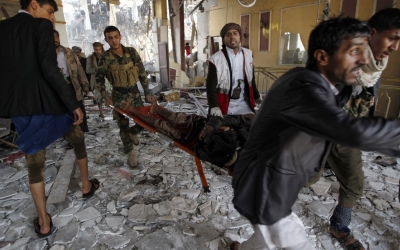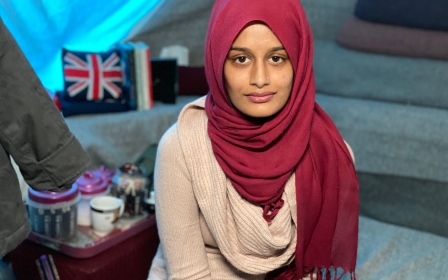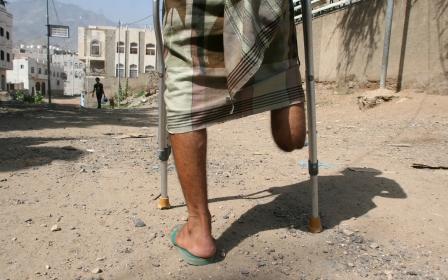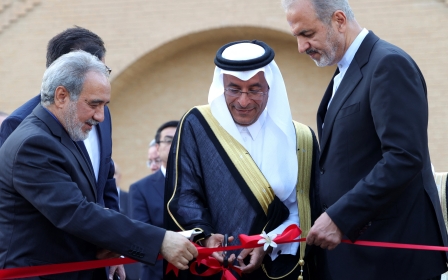UK court invokes Shamima Begum case in rejecting Saudi arms sales complaint
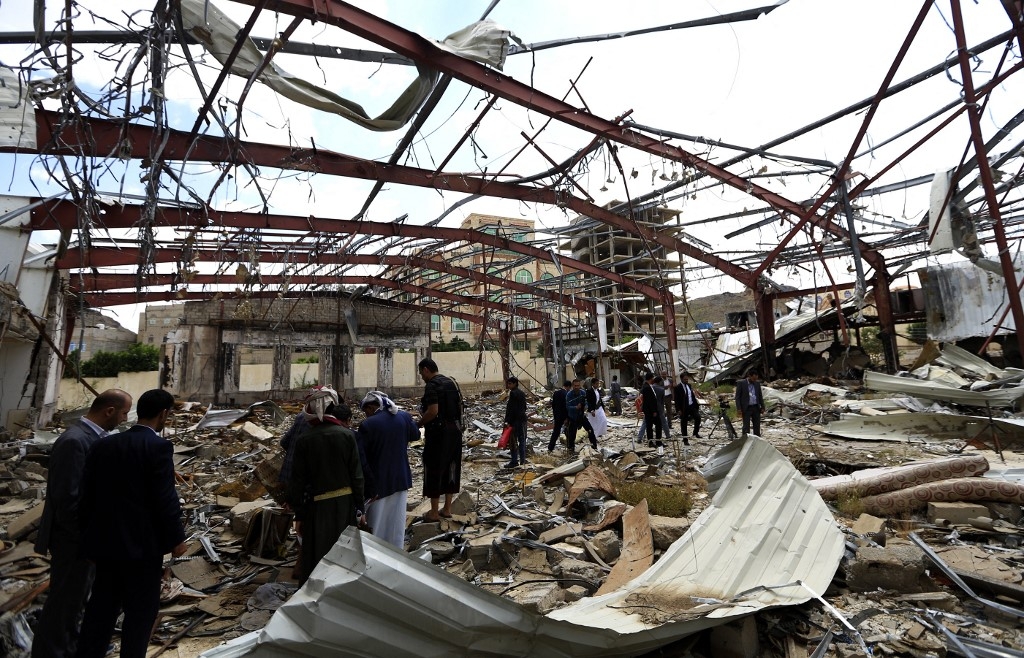
The High Court has cited a Supreme Court judgment which backed the UK government’s refusal to allow Shamima Begum to return to the country in making its own ruling which found that British arms sales to Saudi Arabia were lawful despite war crimes concerns.
In both cases, campaigners and lawyers say judges have deferred to the government's position and tied the hands of those seeking to challenge it by relying on secret evidence heard in sessions closed to the public.
The High Court earlier this week rejected the challenge brought by campaign groups over the sale of British weapons to Saudi Arabia for use in its war in Yemen. The court's role, the judgment said, was limited to reviewing decision-making processes in government.
Decisions made by ministers assessing the risk that UK arms could be used by Saudi Arabia in the commission of serious violations of international humanitarian law in Yemen should "command considerable respect", it said.
Government decision-making surrounding arms sales, the ruling said, was "informed by diplomatic and security expertise which the Court does not possess", and had "parallels with making national security assessments".
New MEE newsletter: Jerusalem Dispatch
Sign up to get the latest insights and analysis on Israel-Palestine, alongside Turkey Unpacked and other MEE newsletters
"That expertise means that the Executive's assessments in this area are entitled to great weight," the judgment said.
It cited a previous court judgment in 2017 which found that judicial scrutiny of arms sales to Saudi Arabia should not "stray into areas that are properly the domain of the executive".
It added that it was not for the court to provide ministers with "some abstract definition of the concept of 'serious violations' of IHL [international humanitarian law]".
These observations, it said, were further supported by the Supreme Court's 2021 judgment in favour of the government against Begum, a British woman stripped of her citizenship in 2019 who remains detained in a Kurdish-run camp in northeastern Syria.
'Impenetrable deference'
Lawyers for Begum, who travelled to Islamic State-controlled Syria in 2015 when she was aged 15, argued that she should be allowed to return to the UK to appeal in person against the deprivation of her citizenship.
But the Supreme Court ruled that Begum's right to a fair hearing should not prevail over the government's assessment that she posed a national security threat.
The revocation of Begum's citizenship was subsequently upheld by an immigration court, despite the judge acknowledging that there was a credible suspicion that she was a victim of sex trafficking.
In criticising that outcome, Begum's lawyers said the Supreme Court judgment had allowed "an almost impenetrable deference to the Secretary of State in reaching conclusions where national security is raised", which had effectively tied the hands of the court considering her appeal.
'The court is essentially saying that issues of "national security" are effectively beyond reproach, even from war crimes'
- Emily Apple, CAAT
While Tuesday's ruling only briefly referenced the Begum judgment, campaigners and lawyers said that the overall argument raised questions about the appetite and power of British courts to hold policymakers to account.
Emily Apple, spokesperson for the Campaign Against Arms Trade (CAAT) which filed the legal challenge against the government over arms sales to Saudi Arabia, said the court's approach was "both worrying and insulting".
"The court has used the appalling decision in Shamima Begum's case to absolve the judges from having to properly scrutinise government decisions that have led to death and destruction as a result of UK arms dealers," Apple told Middle East Eye.
"The court is essentially saying that issues of 'national security' are effectively beyond reproach, even from war crimes. This is both worrying and insulting to all the Yemeni people whose lives have been devastated by war crimes committed by the Saudi-led coalition aided by the UK arms trade."
In both CAAT's legal challenge and Begum's appeal, closed sessions were held for portions of the cases, which touched upon issues of national security, meaning that some of the evidence on which the rulings were based remain secret.
In addition to Tuesday's ruling, the High Court also issued a separate closed judgment which only CAAT's special advocates - lawyers appointed to represent the organisation in closed session - could see.
Fahad Ansari, a lawyer specialising in immigration and citizenship cases, said that the invocation of national security concerns in court was making it increasingly difficult for cases to be effectively heard.
"It is evident that the term 'national security' is now being utilised by the government to effectively hamstring the judiciary of any independent oversight of its actions," Ansari told MEE.
"We hope that the senior courts will begin to push back against this trend in order to give effect to the 'separation of powers' doctrine in order to protect against tyranny."
Details still missing
While this week's ruling shed light on some of the decision-making by government officials over continued arm sales to Saudi Arabia, key information still remains unknown.
MEE has filed multiple Freedom of Information requests over the past year to government departments seeking correspondence between officials about arms exports to the kingdom in the immediate aftermath of a Saudi-led coalition bombing of a crowded funeral hall in Sanaa in October 2016.
More than 140 people died and over 500 were injured in the bombing which UN monitors found violated international humanitarian law.
In the ruling, the judges cited a December 2019 'Decision Paper' which addressed international humanitarian law analysis and said the funeral hall attack was one of two incidents of "most concern" that the UK government had raised with Saudi Arabia.
"The Great Hall Strike raised very serious concerns about targeting. The UK immediately engaged with Saudi Arabia. Systemic improvements were rapidly observed," the ruling said, citing the paper.
But there is little information in the public domain about the details of those concerns and conversations in the days following the bombing. MEE's FOI requests have all been denied.
Middle East Eye delivers independent and unrivalled coverage and analysis of the Middle East, North Africa and beyond. To learn more about republishing this content and the associated fees, please fill out this form. More about MEE can be found here.


